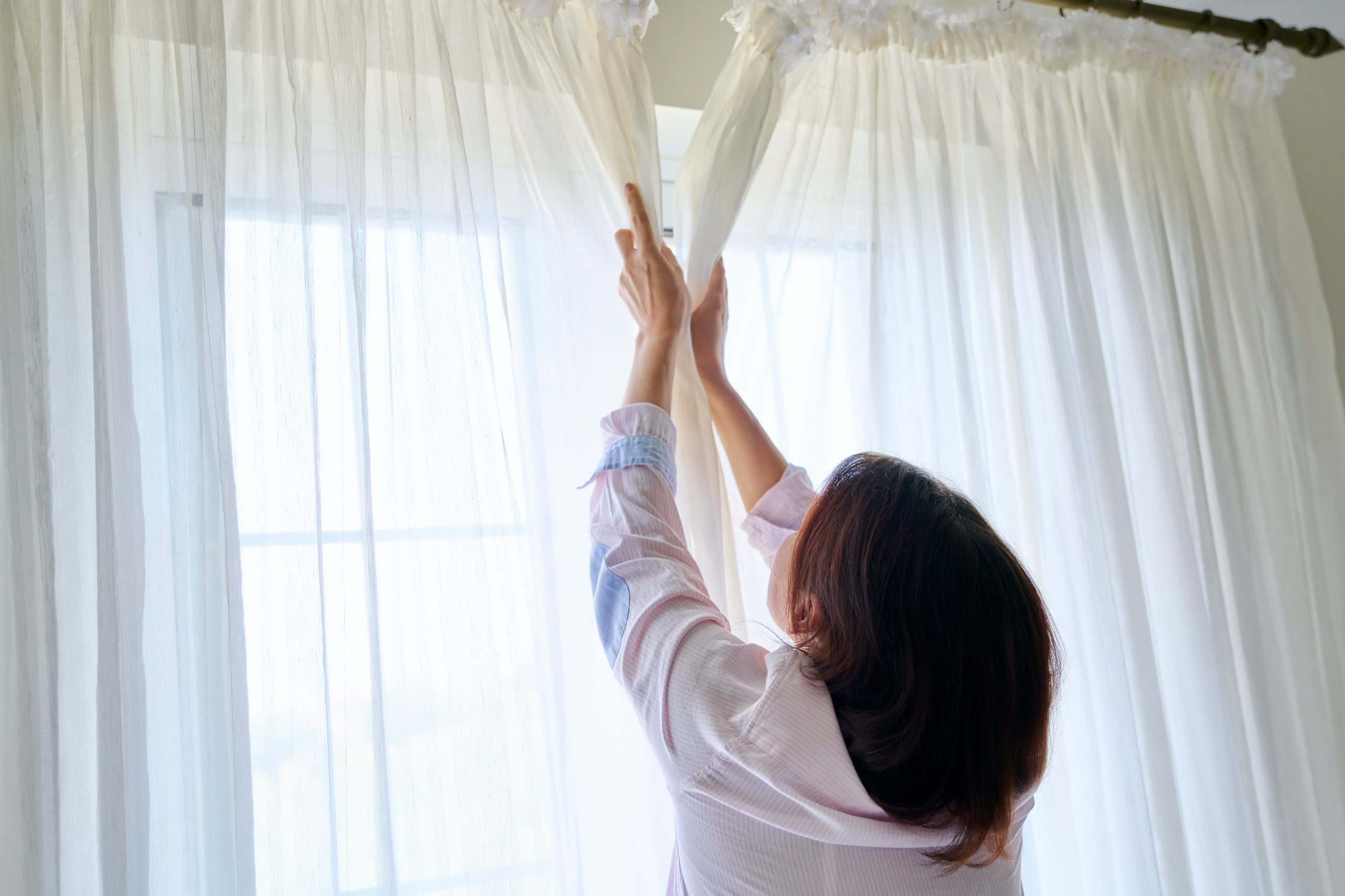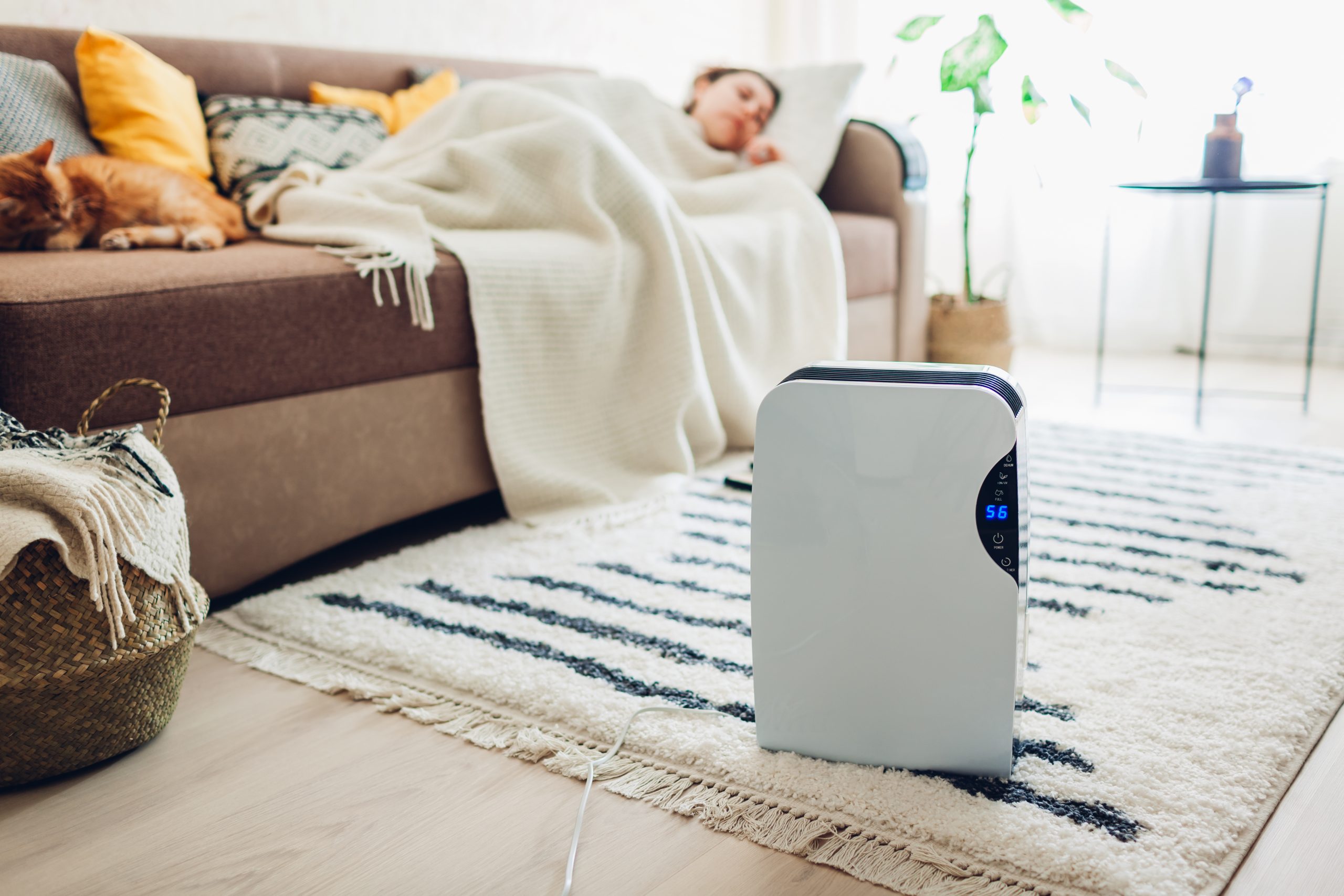Summertime brings many beautiful things, but one of them is excessive heat. As summer approaches, we will turn on the air conditioners, putting a fire in our wallets. Many people cannot afford or do not have access to air conditioning. During heat waves and hot, humid evenings, knowing how to keep your house cool in the summer can be a lifesaver.
Cooling down our homes is an excellent way to counteract severe heat waves, and it can be accomplished with a few simple tricks. With this in mind, we’ve compiled tried-and-true methods to use when the next bout of hot weather arrives.
1) Keep The Sun At Bay:
Although it may seem self-evident, many individuals enjoy letting the light in and having the sun stream through their windows. However, if you’re looking for a way to keep your house cool in the summer, you may have to fight the urge to open the curtains and blinds throughout the day.

2) Cool The Roof:
Cooling the house’s roof is especially important for inhabitants of apartment complexes on the upper floors. Growing a terrace garden, which works as a natural heat barrier, is one approach to achieving this. However, waterproofing the roof first is required to avoid later seepage difficulties. Thermal insulation can also be achieved by employing reflective paints.
3) Use A Dehumidifier:
If you live in a humid area, you sweat a lot, and it doesn’t evaporate. Instead, it soaks your clothes, leaving you hot, damp, sticky, and unhappy. Even in warmer weather, a dehumidifier helps remove extra moisture from the air, making you feel cooler.

4) Unplug Unused Appliances:
When you connect something to a socket, it generates heat. When not in use, unplug all superfluous equipment or electronics. Even the little red blazing lights that glare at you in the middle of the night to indicate that the device is turned off consume energy and generate heat. Unplugging is not the same as turning something off.

5) Find Comfort In Potted Plants:
Growing potted plants at home provides a pleasant and cheerful atmosphere. It helps to lower the house’s temperature by naturally absorbing carbon dioxide and releasing oxygen. It releases moisture and keeps the air around them colder, fresher, and healthier as they transpire. To successfully screen the sun’s rays, plant Aloe vera, baby rubber plants, golden pothos, snake plants, and similar plants on the east and west sides of the home.

6) Cross-Ventilation:
Allowing cross-ventilation in your home offers a very relaxing environment. Keep the windows on opposite sides of the home open. The simplest and easiest way to battle the heat at home is to keep the windows open and enable excellent air circulation. This method aids in lowering the temperature in your home. It’ll surprise you how much cooler it becomes!
7) Switch To High-Efficiency LEDs/CFLs:
The light bulbs should be turned off whenever you are trying to cool your home as they also provide heat. Selecting the correct type of light bulb can also significantly impact their ability to generate heat. Incandescent bulbs produce light through heat, consuming around 90% of the energy consumed. They increase electricity bills and generate a lot of heat and consume more energy. So remember to turn off your incandescent lights when not in use, and consider replacing them with LEDs or CFLs, which produce less heat and consume less energy.

8) Consider Decluttering :
It may seem strange, but a crowded room is an unattractive sight and obstructs the natural movement of air in the home. Adopt a minimalistic approach and keep only the essentials; eliminate useless items that take up room and make the place feel claustrophobic. Make a quick clean-up, open the windows, and replace dense woolen rugs/carpets with light, colorful jute/cotton ones to create a more airy space.
9) Turn To Light-Colored Natural Fabrics:
Heat is quickly absorbed by silk, satin, leather, and polyesters. Choose linen and cotton upholstery for your furnishings and bedding. Ventilation and airflow are aided by light, airy, and breathable textiles. They can also instantly brighten a gloomy space. White cloth covers will help your furniture absorb less heat. These covers will reflect the light. Some argue that it absorbs less heat from the sun. As a result, the furniture and interior of the house remain cooler.

10) Use Your Fan Smartly:
Did you know that there is a proper and improper way to operate your ceiling fan? A little switch at the base of your ceiling controls the airflow direction. This method will assist in removing the warmth from the room. As a result, you’ll feel more relaxed. Instead of blowing warm air in your direction, this way of reversing the rotation of the blades will push it to the ceiling. It does not necessarily chill a room, but it does enhance the amount of evaporative cooling that your skin produces, making you feel cooler.

11) Utilise The Night Air:
The nights are usually significantly colder in the summer. Take advantage of this by opening the windows before going to bed. In apartments, security should not be a cause for concern before leaving the windows open while you sleep. However, you can make the required preparations, such as installing grills or leaving the upper windows open.

12) Lighter Color Shades:
It’s a fantastic time to paint your walls because of the dry summer weather. Give your home a festive makeover that will keep it looking new all year. Pastel yellow, aqua, millennial pink, beige, and white are all good choices. Painting your property will also allow you to assess your walls and prepare them for the upcoming rainy season.

You may not only save money by employing these natural cooling measures, but you can also help to protect the environment by being energy efficient. Which of these tips are you planning to incorporate this summer? Share with us some more helpful advice if we missed any.

Many of you, if you were planning to buy a home, could have come across the term RERA. But what is it all about? The Real Estate Regulatory Authority (RERA) was set up to make home-buying sa...

Property tax assessment is a foundational part of how local governments determine the value of real estate land, homes, or commercial buildings to calculate the taxes property owners owe. Th...
Comments